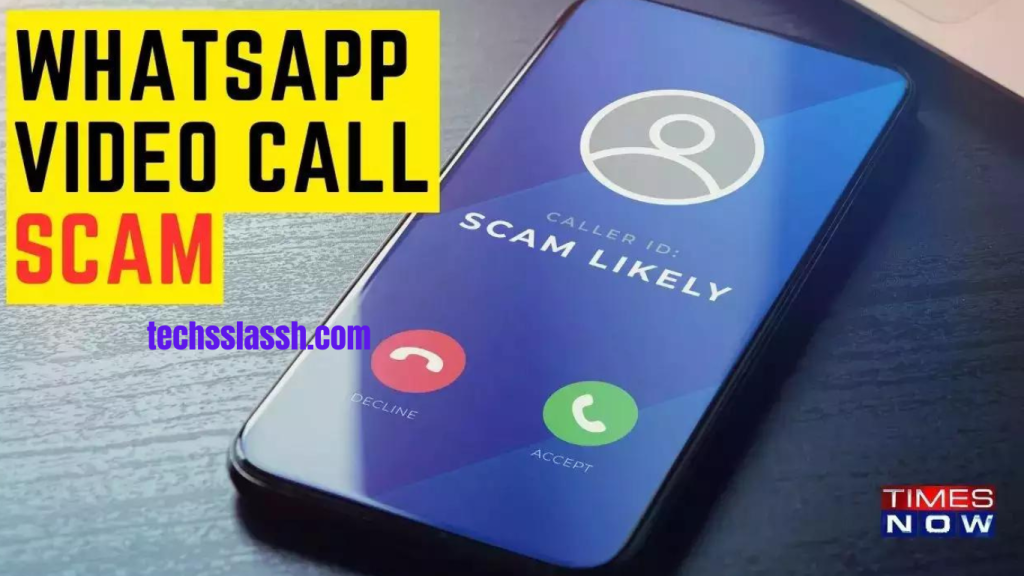Table of Contents
WhatsApp has gained widespread popularity as a communication platform, facilitating global connections through text, voice, and video calls. Despite its utility, WhatsApp, like many online platforms, is vulnerable to scams and cyber threats. Among these is the prevalent WhatsApp Video Call Sextortion scam, wherein scammers coerce users by threatening to expose compromising content captured during video calls. Safeguarding against such threats is crucial for a secure online experience. Here are 10 vital tips to protect yourself:
Understanding the WhatsApp Video Call Features Scams
WhatsApp’s Video Call Features Scams Unveiled
WhatsApp’s screen-sharing scams represent a crafty tactic scammers use to exploit the application’s screen-sharing functionality.
Diverging from traditional scams that straightforwardly solicit sensitive data, this scheme manipulates users into triggering screen sharing within the WhatsApp app.
By assuming false identities, instilling a sense of urgency, or offering aid with phone-related matters, scammers dupe users into unknowingly authorizing real-time access to their phone screens.
Once the screen sharing commences, scammers can observe all activities on the user’s screen, transcending WhatsApp messages to encompass critical information like one-time passwords (OTPs) for bank accounts, social media, or other vital services.
Equipped with this data, scammers can deplete bank accounts, lock users out of social media accounts through password alterations, or implant malware for future surveillance.
The Silent Danger: No Active Input Required
The Silent Threat: Passive Accessibility
What renders this scam especially hazardous is its minimal requirement for user interaction.
A mere click to activate screen sharing, typically employed innocently for valid reasons, grants scammers unrestricted entry to confidential information.
Protecting Yourself: Key Tips
Protecting Yourself: Essential Tips
- Exercise Caution with Unknown Calls: Approach voice or video calls from unfamiliar WhatsApp numbers cautiously. Refrain from answering calls from unknown contacts. If uncertain, verify the caller’s identity before proceeding.
- Guard Your Confidential Information: Never disclose OTPs, credit/debit card details, or CVVs, even if the requests appear legitimate. Stay alert to potential scams.
- Safeguard Passwords: Keep your passwords confidential. Avoid sharing them with anyone, including those purporting to represent official entities.
- Mindful Screen Sharing: Ensure only relevant files are open when engaging in video calls, particularly when sharing your screen. Avoid accessing apps like messages or notepads containing sensitive data such as passwords.
HOW TO SAVE YOURSELF FROM WHATSAPP SEXTORTION VIDEO CALL SCAM
Protect Yourself from WhatsApp Sextortion Video Call Scam WhatsApp offers a feature to mute calls from unknown numbers, safeguarding you from falling victim to dangerous scams. By enabling this feature in your settings, the app automatically silences calls from random numbers not saved in your contacts, thwarting attempts to steal your money or personal information through WhatsApp calls (audio and video).
Frequently Asked Question
What are WhatsApp video call scams?
WhatsApp scams involve fraudsters initiating video calls via the messaging app to deceive users into revealing personal information, sending money, or installing malicious software on their devices.
How do scammers initiate these calls?
Scammers often pose as acquaintances, businesses, or even tech support agents, sending messages to users to initiate video calls. They may also use automated bots to make the calls appear more legitimate.
What are common tactics used by scammers during video calls?
During these calls, scammers may employ various tactics, such as pretending to be in distress, offering fake investment opportunities, or claiming representatives from well-known companies to gain the victim’s trust and coax them into sharing sensitive information or sending money.
What should I do if I receive an unexpected video call from an unknown number?
If you receive an unexpected video call from an unknown number, it’s crucial to exercise caution. Avoid answering or engaging with the call, especially if you don’t recognize the caller. Instead, consider blocking the number and reporting it as spam.
How can I safeguard myself from becoming a victim of any potential harm? Scams or frauds?
To protect yourself from WhatsApp video call scams, Please do not share personal information or financial details. Over video calls, especially with unfamiliar callers. Please consider enabling two-factor authentication on your WhatsApp account for added security. Regularly update your device’s security software to prevent malware attacks.
What should I do if I suspect a WhatsApp video call scam has targeted me?
If you suspect a WhatsApp video call scam has targeted you, refrain from further interacting with the caller and immediately report the incident to WhatsApp. Additionally, consider informing your contacts about the fraud to prevent them from falling victim.
Can scammers hack my device through video calls on WhatsApp?
While scammers are unlikely to hack your device solely through WhatsApp video calls, they may attempt to trick you into downloading malware or disclosing sensitive information during the call. Therefore, it’s essential to remain vigilant and avoid complying with suspicious requests.
Is it safe to accept video calls from known contacts on WhatsApp?
While accepting video calls from known contacts on WhatsApp is generally safe, it’s still essential to exercise caution. Verify the caller’s identity if you have any doubts, and avoid sharing sensitive information or clicking on suspicious links sent during the call.
Conclusion
Safeguarding yourself against WhatsApp video call scams requires vigilance, awareness, and proactive measures. As scammers evolve tactics, staying informed about the latest threats and adopting best practices to protect your personal information and finances are crucial.
By following the tips outlined above, such as refraining from sharing sensitive information during video calls, enabling two-factor authentication, and reporting suspicious activity promptly, You can significantly decrease the chances of becoming a victim of these incidents by taking necessary precautions. Scams. Remember, staying cautious and sceptical of unexpected calls, even from seemingly familiar contacts, is critical to maintaining your cybersecurity and peace of mind in the digital age.
